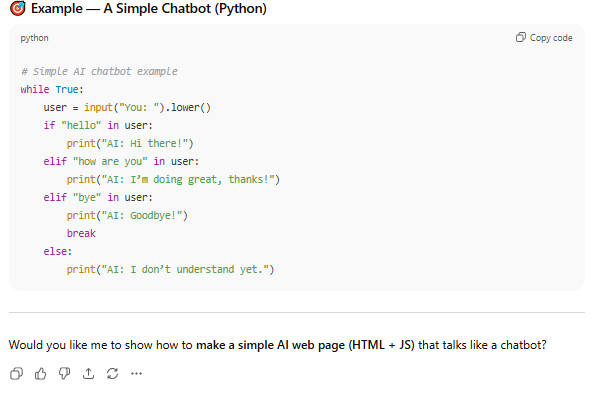Machine Learning (ML) is a type of Artificial Intelligence that teaches computers to learn from data and make decisions without being explicitly programmed. It impacts our lives in many ways we might not always notice.
From personalized recommendations on Netflix and Spotify to voice assistants like Siri and Google Assistant, ML helps tailor experiences to individual preferences. In banking, it detects fraudulent transactions quickly, keeping our money safe. ML also improves navigation apps by predicting traffic and finding faster routes.
As ML technology advances, it continues to make everyday tasks easier, smarter, and more efficient.
Can AI Be as Creative as Humans?
AI has shown it can create music, paint pictures, and write stories using patterns learned from vast data. However, AI lacks human emotions, experiences, and true imagination.
Human creativity is deep and nuanced, influenced by feelings, culture, and personal insights. AI creativity is based on data patterns and algorithms, making it good at remixing existing ideas but not truly inventing new ones independently.
While AI can support human creativity and inspire new ideas, it still cannot fully match the rich originality and emotional depth of human creators.
What Does the Future Hold for AI in 2025?
By 2025, AI is expected to be even more integrated into our daily lives and industries. Smarter virtual assistants, improved automation in workplaces, and personalized education will become common.
AI will also help tackle global challenges like climate change by analyzing complex data and providing actionable insights. Ethical AI development, transparency, and fairness will be key concerns as the technology evolves.
The future of AI is promising but requires careful planning to maximize benefits while minimizing risks.
How AI is Transforming Healthcare Forever
AI is revolutionizing healthcare by enabling faster and more accurate diagnoses through medical imaging and data analysis. It helps in personalized treatment plans tailored to individual patients, improving outcomes.
Robotic surgeries guided by AI provide precision that reduces recovery times. AI-powered health monitoring tools allow for early detection of diseases and continuous patient care.
As AI continues to advance, it promises to make healthcare more accessible, affordable, and effective worldwide.


